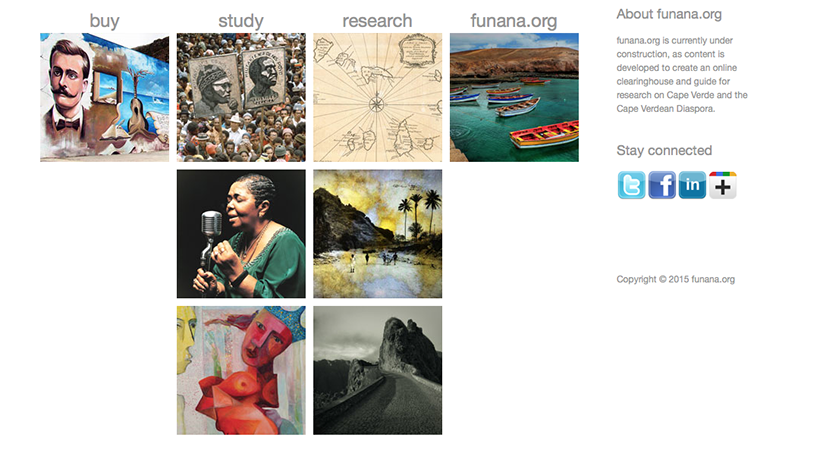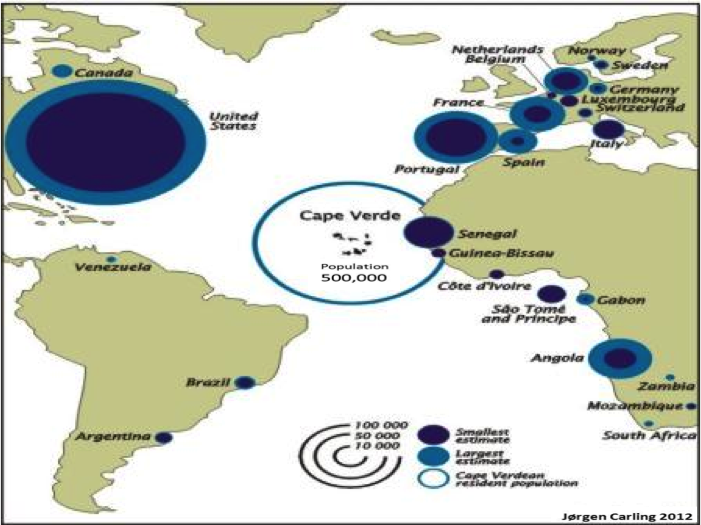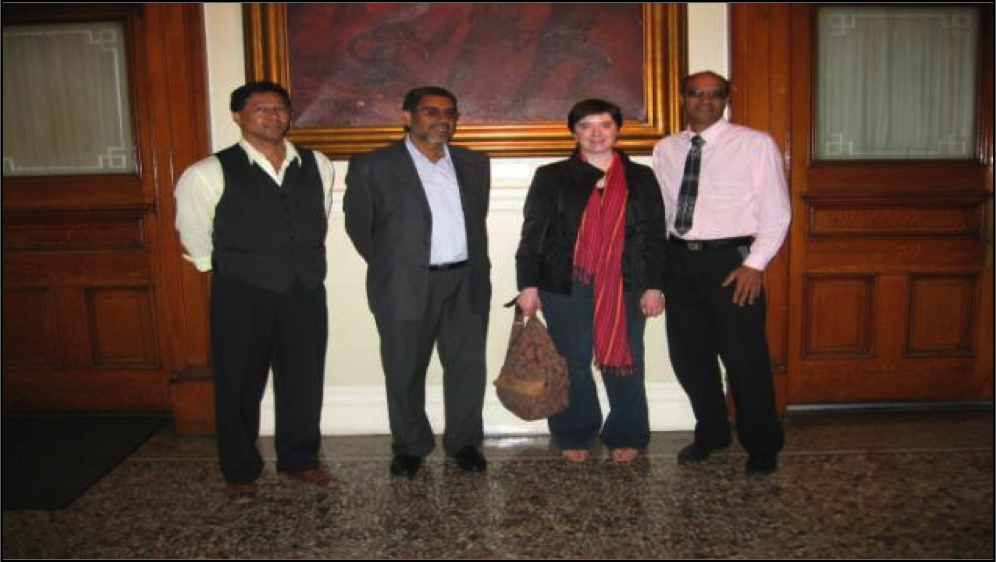Interview with the Researcher
Dissertation Summary
This dissertation investigates the interrelationship of language and music in the complex cultural domain of Cape Verde and the Cape Verdean diaspora in West Africa, Europe, and North America. I illustrate how derogatory tropes of degeneracy, inferiority, and impurity applied to Creole languages and cultures (Creole exceptionalism) have prevented language parity between Portuguese, Cape Verde’s official colonial language, and Cape Verdean Creole (CVC), the vernacular of the country’s entire population. These tropes and their sociological implications are, ultimately, detrimental to efforts toward development in the country. I show that music, a safe and welcoming space for CVC, plays an integral role in preserving and promoting the language.
The results of centuries-old exceptionalist beliefs include the historical association of women as closer to nature than to culture in the Cape Verdean context and the perception of CVC language and culture as similarly subaltern as compared to their European counterparts. While men have traditionally been the revered songwriters and cultural intellectuals in Cape Verde, on world music stages Cape Verdean women have had the lion’s share of success. I argue that this gender role reversal is largely due to the unique career of Cesária Évora. Drawing on discourse-centered analysis, I chart the elements of race, gender, and social class indexed by song texts into the sociopolitical world of which they are a part and analyze the fruitful interventions and subversions made by Cape Verdean women performers in discussions of womanhood, “Africanness,” and “Creoleness.”
This study contributes to numerous ongoing scholarly debates in African diaspora studies and Creole studies, especially regarding the politics of representation, and offers one of the few existing comprehensive historical and ethnographic studies of language in music and of a Creole language specifically. Inherently political, the research for this dissertation has been accompanied by a decade-long project of social engagement advocating for the linguistic human rights of CVC speakers.
Social Engagement Work
The research and writing of my dissertation began with a problem – language inequality, and its resulting sociological implications, in Cape Verde and the Cape Verdean diaspora. The problem stemmed directly from my ongoing work on Cape Verdean Creole language rights.
Since 2002, I have been actively engaged in advocacy for the Cape Verdean Creole language in the hopes of reforming social and educational policy in the United States, Cape Verde, and Europe to better address the needs of Creole language speakers and to promote full bilingualism (side-by-side with the official language of Portuguese) in Cape Verde. This advocacy work has included serving as a board member of the Capeverdean Creole Institute, a Boston-based organization devoted to the promotion of Creole. The group, composed of New England area scholars and pedagogues, has played a role in developing the standardized orthography for Creole and designing Creole-English bilingual materials in the United States. Events organized by the Capeverdean Creole Institute have included language education seminars, workshops, and conferences; author, artist, diplomat, and educator exchange trips from Cape Verde and other parts of the diaspora for cultural events; and translation and curriculum development consultation. The work of the Capeverdean Creole Institute has resulted in stronger ties between American institutions and Cape Verdean ones, increased visibility of Creole language issues in Cape Verde and the diaspora, improved educational opportunities, and significant development of materials in Creole and in translation.
I have also become the United States representative of the National Library of Cape Verde, responsible for distributing its many published books in this area. Through this non-profit initiative, I organize multiple book fairs in conjunction with other large cultural events each year. Members of the Cape Verdean community now have access to these publications for purchase or for borrowing from local libraries, both private and public, which have vastly expanded their collections to better serve the needs of Cape Verdean patrons. Harvard’s own collection has increased by the hundreds as a result of this partnership, as have the collections of New Bedford Public Library and Rhode Island College.
To increase access to these books, I have also begun selling them online, via the website funana.org. The site, which is under construction, is also being expanded to serve as a sort of online clearinghouse for Cape Verdean studies, designed for use by both specialists and non-specialists. At present, it serves as a directory to the Cape Verdean web and to Cape Verdean scholarship, hosting lists of institutes and scholars important to Cape Verdean studies and links to related sites. Interactive content is currently being developed, as well.
To conclude, the dissertation that I’ve written emphasizes the role that archival and ethnographic research can play in the understanding of attitudes toward the Creole language. Just as significant to this project is social engagement, or the active political intervention in advocating for social change around this language problem. By working with the underlying goal of creating Creole equality with Portuguese, I join a chorus of voices dedicated to the preservation of African and African diaspora languages and musical traditions and to activism for linguistic and cultural human rights.
Funana.org
Language advocacy in scholarly circles and global Cape Verdean communities

Authors from Cape Verde visit New England Area

